Pyelonephritis and Perinephric Abscess (Clinical)
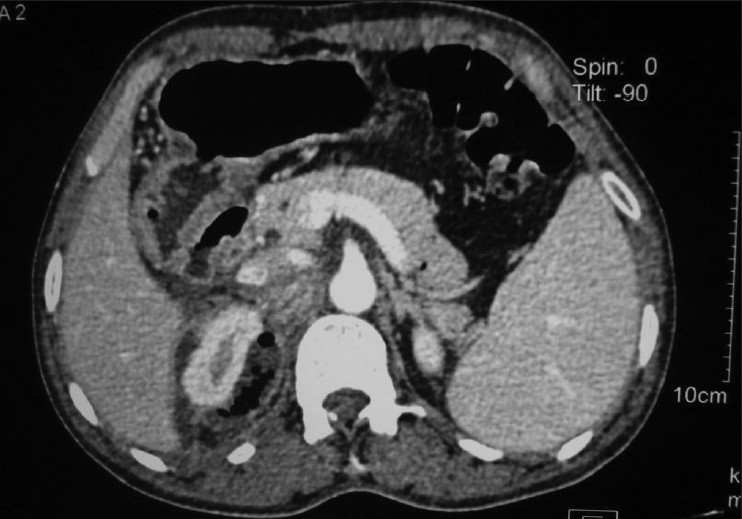
Overview[1–5] Definitions Types of pyelonephritis[2–4] Acute pyelonephritis is the sudden onset of an infectious process and inflammation of the kidney(s) from ascending infection (usually from simple cystitis) or hematogenous spread of systemic infections. Epidemiology[1–4] Etiology Uropathogens[2,3,5] Risk factors for urinary tract infections[2,3,5] Associated with the development of pyelonephritis and perinephric abscess: Pathophysiology Acute pyelonephritis[2,3] Initial […]
Atrial Flutter (Clinical)
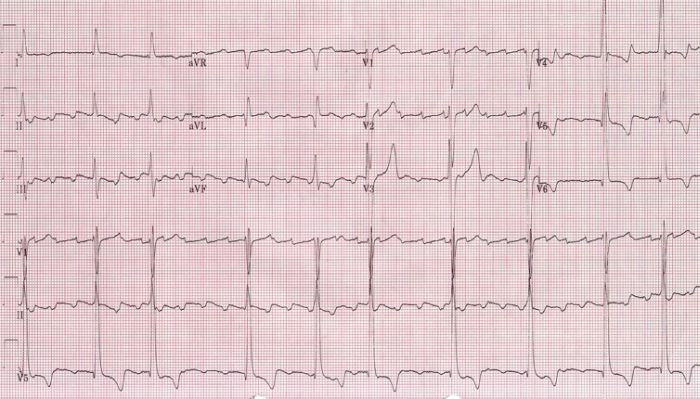
Overview Epidemiology[6,9,13] Etiology[1,4,6,9] Pathophysiology[1,4,9,13] Atrial flutter is caused by a macroreentrant electrical loop (reentrant circuit covers a large area of the atrium): Typical atrial flutter: Atypical atrial flutter: Clinical Presentation Symptoms[4,6,10,12] Physical exam[6,10] Complications[4,6,10] Table: Complication Possible symptoms Exam findings Cardiac: Long-term tachycardia can cause cardiac structural changes. Increased oxygen demand of the myocardium Heart […]
Atrial Fibrillation (Clinical)
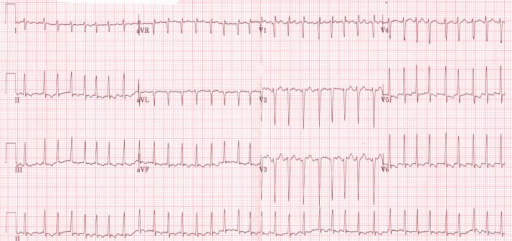
Epidemiology and Etiology Epidemiology[6,12,21] General risk factors for cardiovascular disease[2–4] Risk factors for AF[1–3,7] Cardiac risk factors Non-cardiac risk factors Myocardial infarction Coronary artery disease Heart failure Cardiomyopathy (specifically hypertrophic) Other arrhythmias Valvular heart disease Congenital heart disease Myocarditis Wolff-Parkinson-White syndrome (WPW) Electrolyte disturbances (e.g., hypokalemia) Diabetes Drugs (e.g., theophylline, adenosine, digoxin) Surgery (e.g., coronary […]
Ischemic Stroke (Clinical)
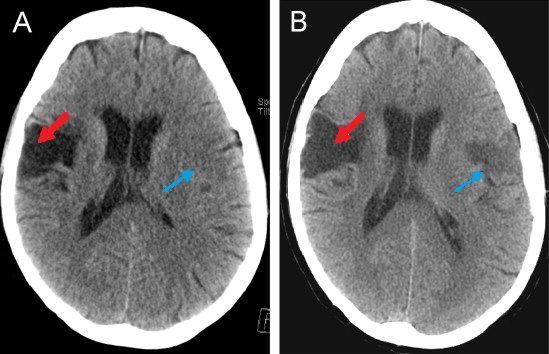
Overview Definition[4,6] An ischemic stroke is an acute neurologic injury that occurs as a result of brain ischemia; this condition may be due to cerebral blood vessel occlusion by thrombosis or embolism or, rarely, due to systemic hypoperfusion. Epidemiology[4,12] Etiology/classification[6] Thrombotic stroke: Embolic stroke: Systemic hypoperfusion: Risk factors[10] Pathophysiology A complete reduction in cerebral blood […]
Heart Failure (Clinical)
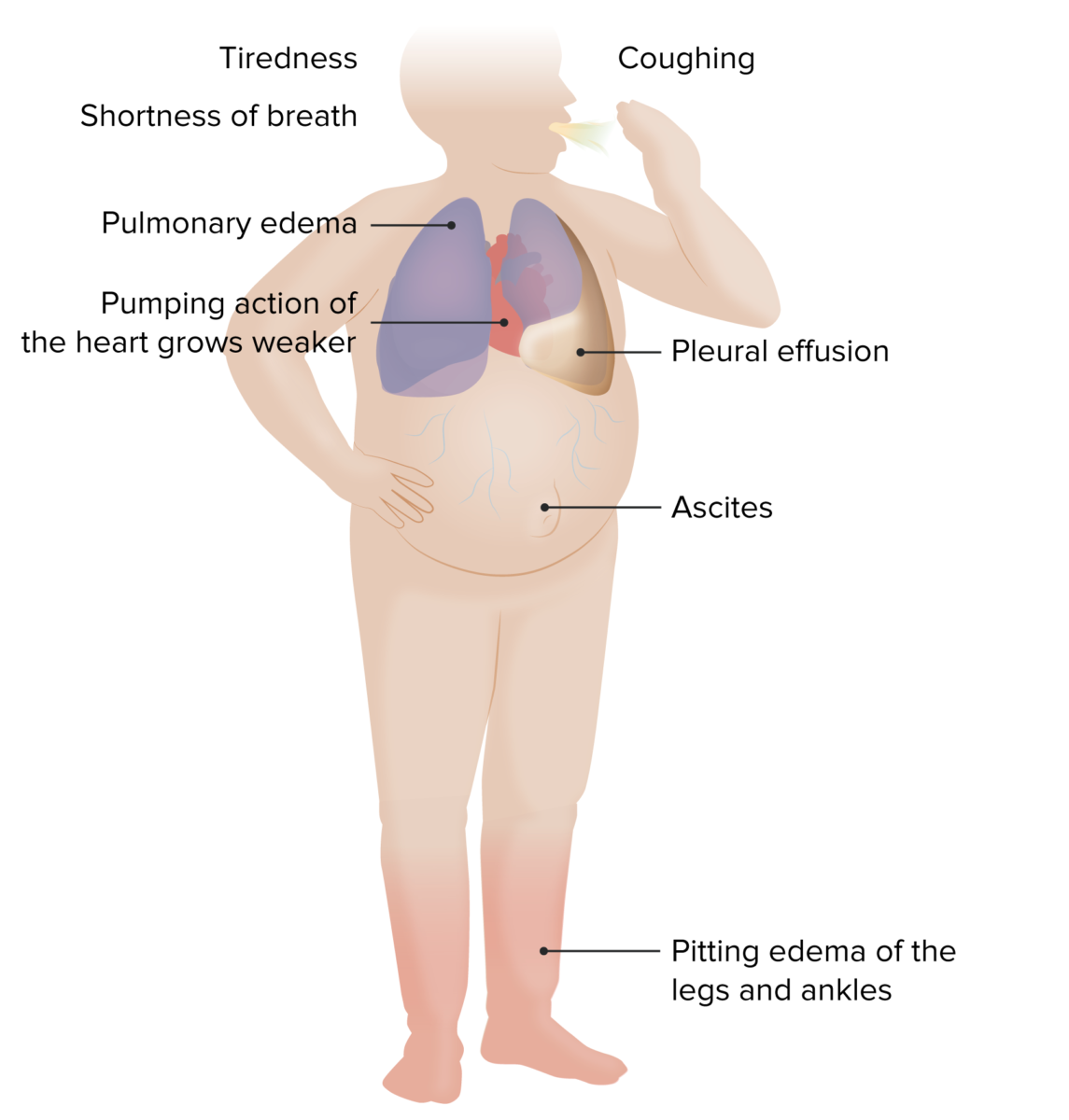
Epidemiology and Etiology Epidemiology[1,2,43] Etiology[1–3,6,8,13,43] Underlying conditions include: Risk factors include: Classification and Pathophysiology Classification[1,2,13,43] By duration: By ejection fraction (EF): By the area affected: Pathophysiology[1,43] Clinical Presentation Symptoms of HF[1,2,13,43] Signs of HF[1–3,6,13] Table: Left-sided versus right-sided HF signs and symptoms Left HF Right HF Symptoms Dyspnea Fatigue Orthopnea Paroxysmal nocturnal dyspnea Cough Exercise […]
Amyotrophic Lateral Sclerosis (Clinical)
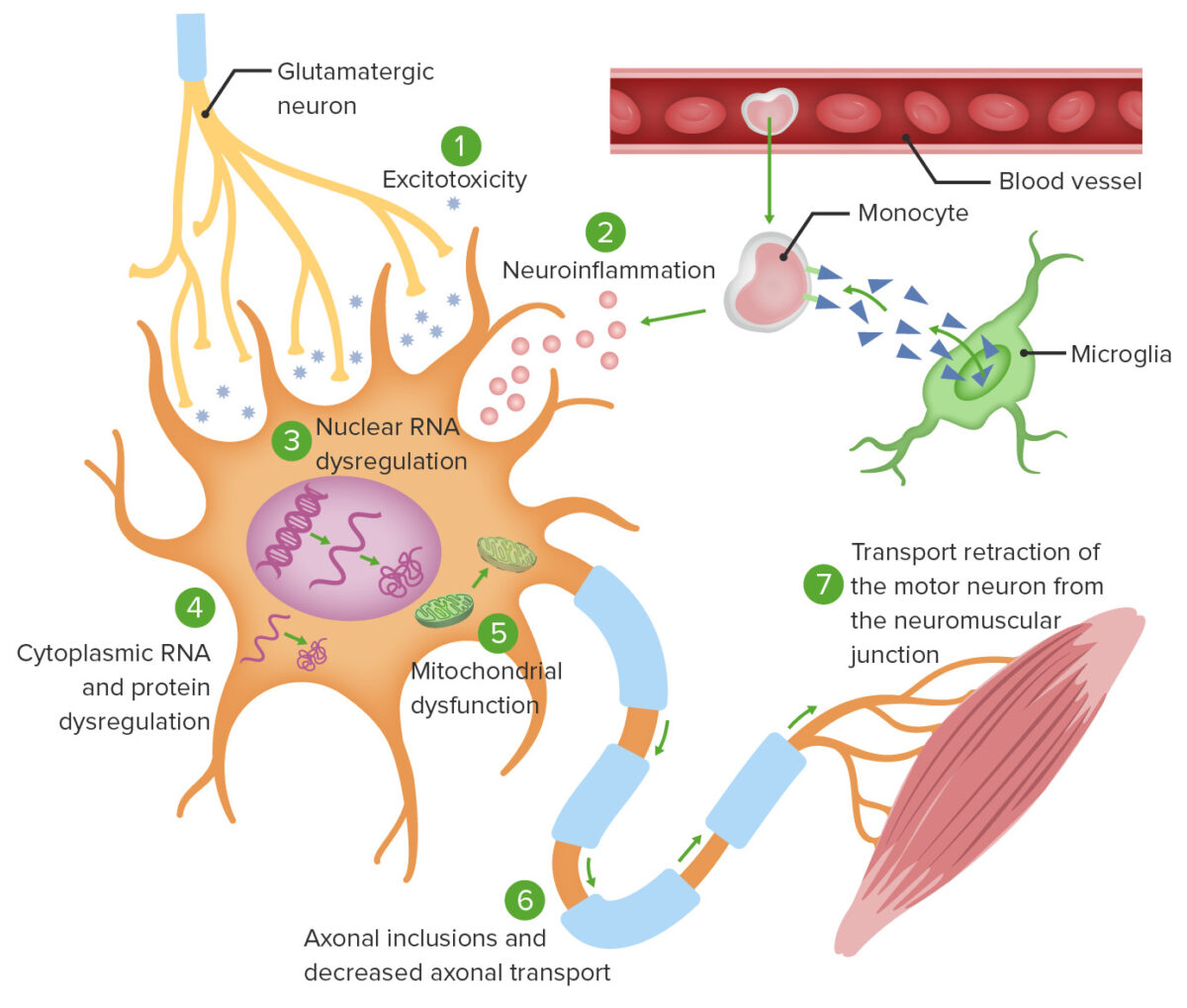
Overview Definition Classification[8] Epidemiology[8,16,22] Risk factors[8] Etiology[3,8] The cause of sporadic ALS is unknown. However, there are multiple contributing factors: Pathophysiology The exact pathogenic mechanism of ALS is unknown. There appear to be both molecular and genetic pathways that combine to cause UMN and LMN apoptosis.[3,8,16] Clinical Presentation History[2,5,8,9,19] Physical examination[8,9] During the usual natural […]
Community-Acquired Pneumonia (Clinical)
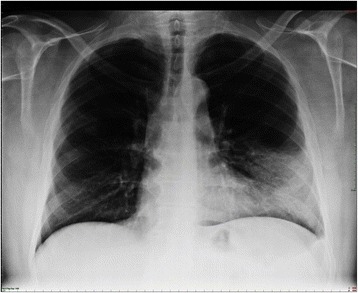
Overview Definition Pneumonia is the infection of the lung parenchyma. Types of pneumonia Classification based on the site where infection was acquired:[1,2,8] Classification by etiology:[17,18] Epidemiology[8] General: CAP: Etiology and Pathophysiology Etiology[2,6,20] Table: Common pathogens detected based on the site of care[2,14] Outpatient Non-ICU Inpatient ICU S. pneumonia M. pneumonia Respiratory viruses S. pneumonia M. […]
Acute Coronary Syndrome (Myocardial Infarction and Unstable Angina) (Clinical)
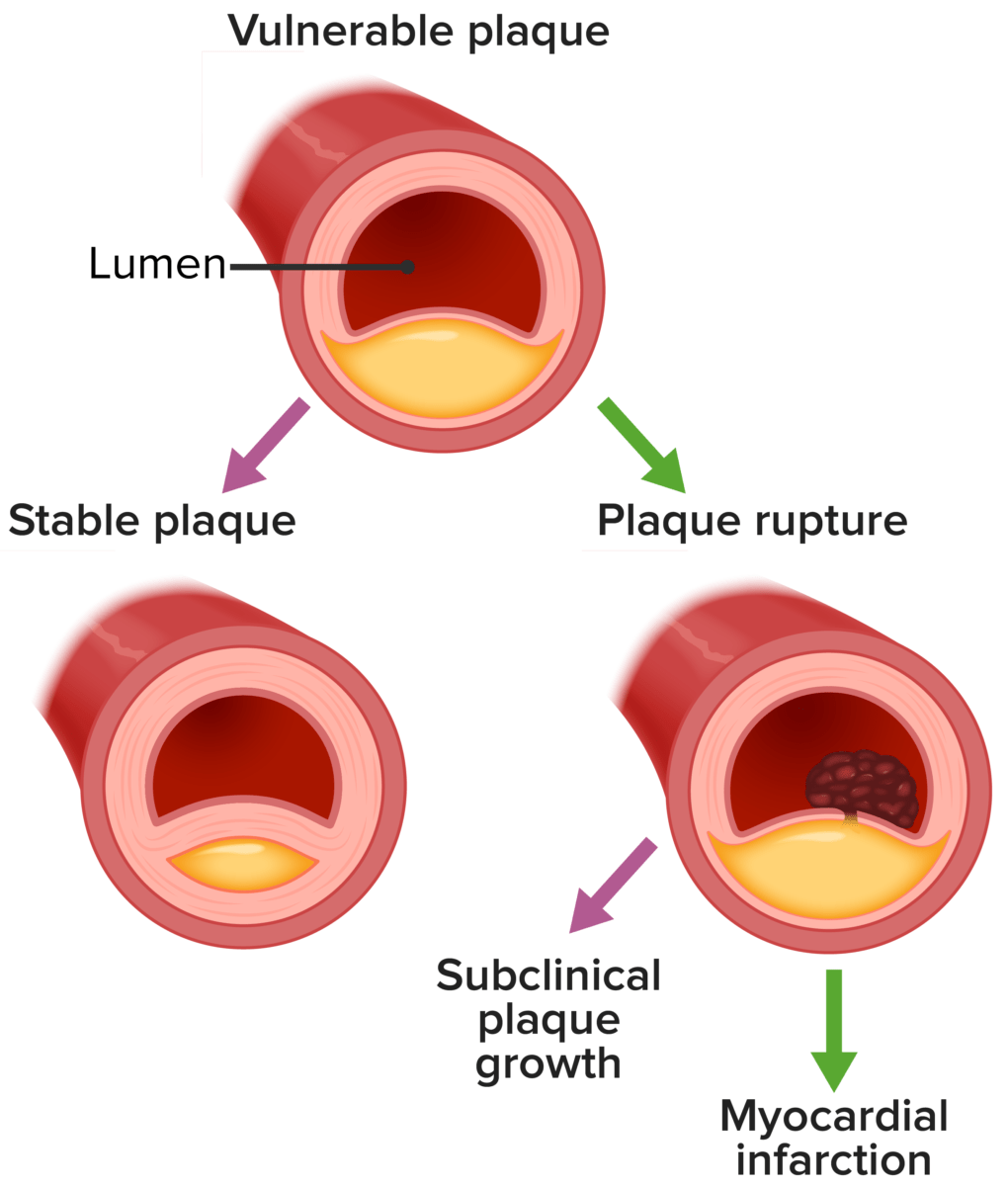
Overview Definitions[2,12,18] Myocardial infarction (MI): MI, commonly known as a “heart attack,” is defined as acute myocardial injury and tissue death resulting from ischemia. Acute coronary syndrome (ACS): ACS is a broad term defined by a condition in which myocardial ischemia or infarction is suspected or confirmed; it includes: Epidemiology[10,12,24] Risk factors[6,7,10] The risks of […]
Reactive Arthritis (Clinical)
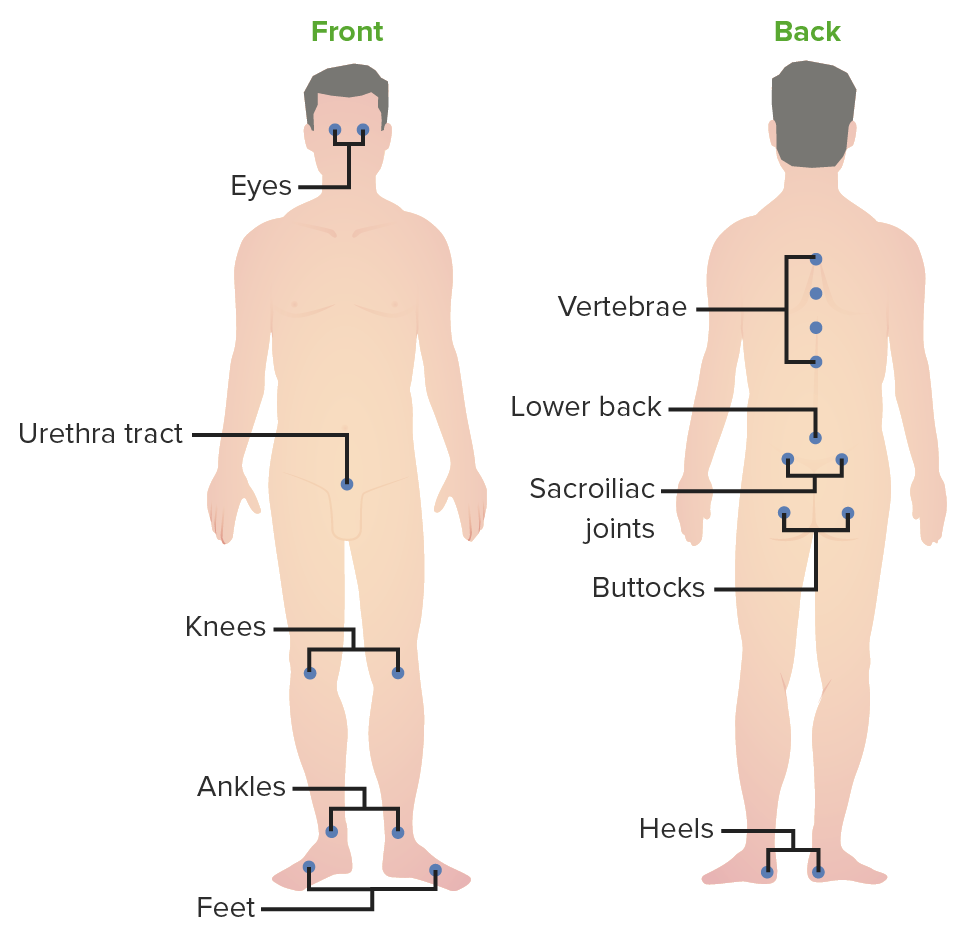
Overview Definition Reactive arthritis (ReA) is an autoimmune, post-infectious, seronegative spondyloarthritis. Mnemonic The seronegative arthropathies can be remembered as “PAIR.” Epidemiology[1–4,19] Etiology[1–4,13–15,17] Clinical Presentation Articular manifestations Onset is acute, within 1–4 weeks of an inciting infection.[1,3,15] Peripheral arthritis:[2–4,11–13,15] Enthesopathy:[2–4,12,15] Tendonitis and periostitis:[2–4,12,15] Dactylitis:[2,3,12,15] Sacroiliitis:[2,3,12,15] Extra-articular manifestations Ocular:[1–4,11–13,15] Genitourinary:[1–4,11–13,15] Mucocutaneous:[1–4,11–13,15] GI:[1–4,12] Cardiac:[1–4,12,13,15] Clinical triad[11,15] This classic […]
Ménière Disease (Clinical)
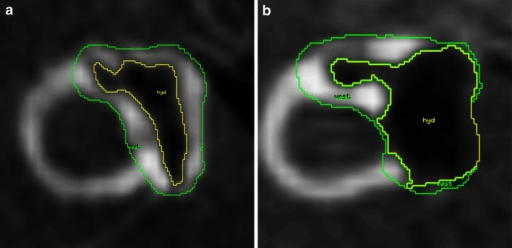
Overview Definition Ménière disease is a triad of episodic vertigo, tinnitus, and hearing loss likely caused by endolymphatic hydrops of the labyrinthine system of the inner ear. Ménière syndrome is Ménière disease occurring secondary to other inner ear infections. Epidemiology[2,5,7] Risk factors[1,4–6] The etiology of Ménière disease is not fully known. However, risk factors for […]